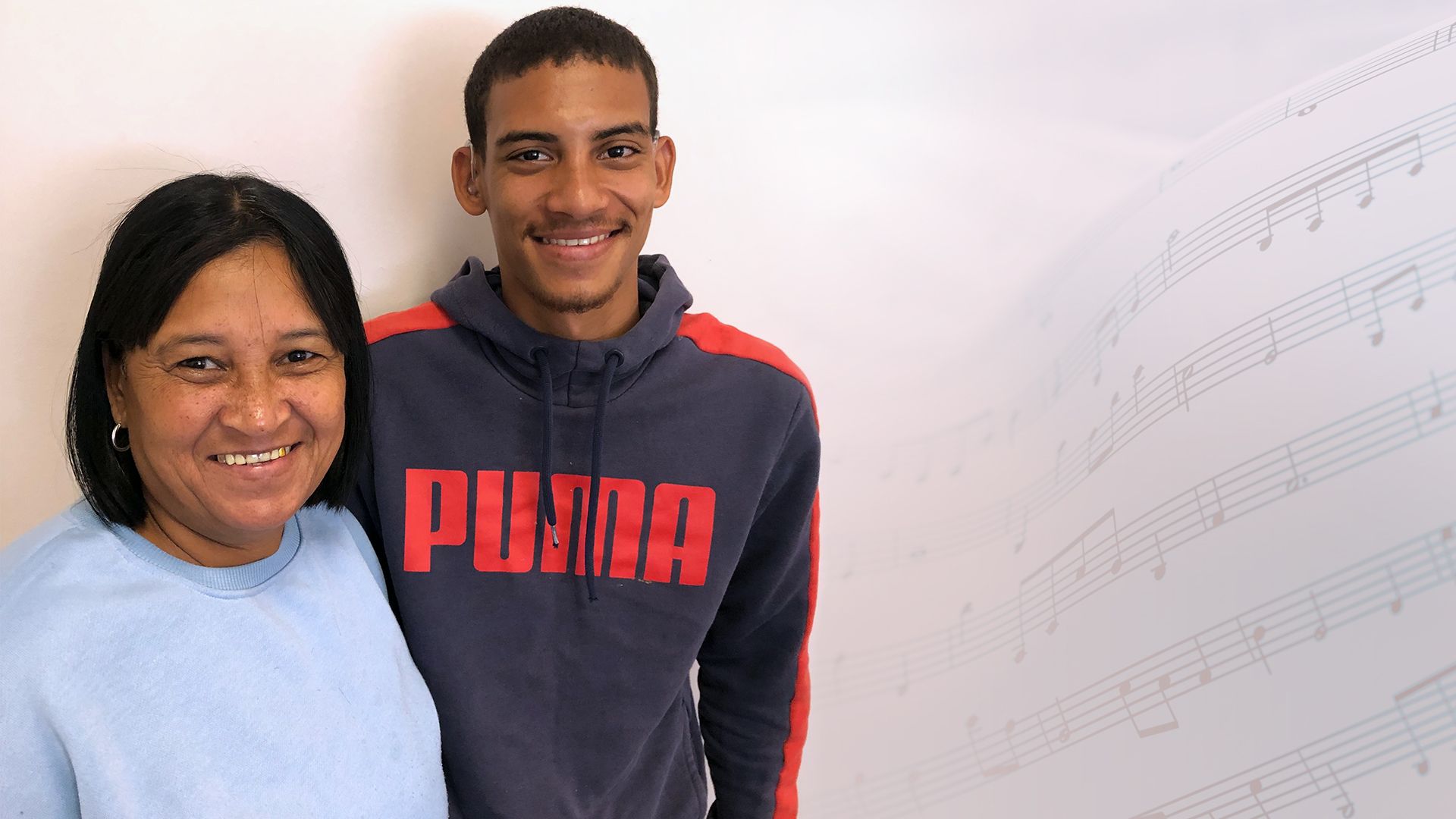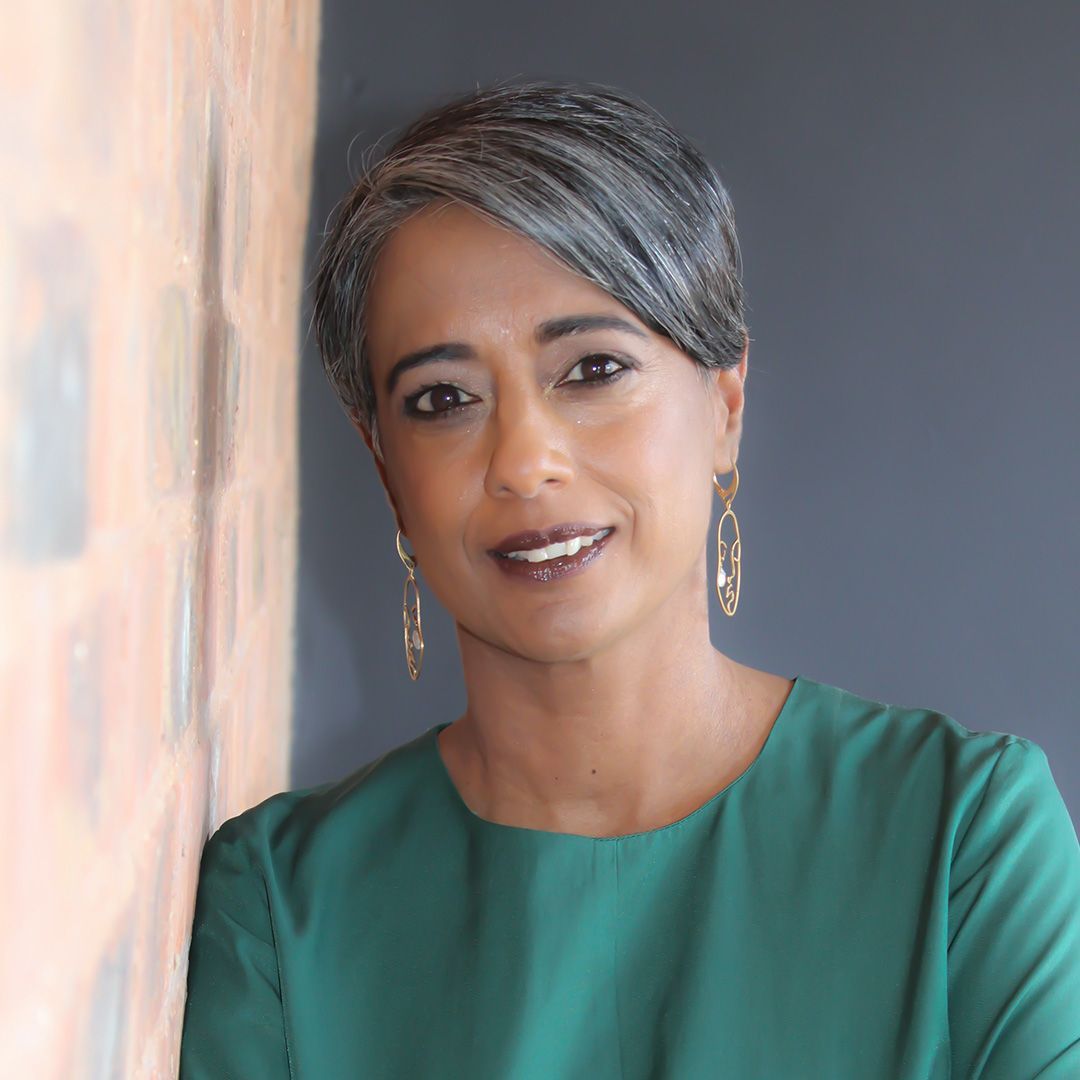Ryan’s love of music restored, thanks to cochlear implant
Ryan Kurt Williams, of Leonsdale in Cape Town, is pictured with his mother Nicolette after his recent cochlear implant at Netcare N1 City Hospital that has allowed him to hear with much greater clarity.
Young man faces the future with new confidence
A young man with a passion for music is experiencing sound clearly for the first time since early childhood, thanks to a cochlear implant that has restored his hearing made possible by a team of caring medical professionals and the Netcare Foundation.
“Ever since the implant was turned on, I could hear sounds, new things that I had never heard before,” says Ryan Williams, 20, a month after his cochlear implant was activated.
Professor James Loock, an Ear, Nose and Throat (ENT) surgeon and the audiology team of the Tygerberg Hospital and University of Stellenbosch Cochlear Implant Unit (THUSCIU), identified Ryan as an ideal candidate to benefit from a cochlear implant.
“We believe Ryan was born with normal hearing, but from the age of three he developed some progressive hearing loss. In 2012, by age eight, his hearing was severely affected. As a consequence of this hearing loss his speech and language development was delayed,” Prof Loock explains.
Ryan was diagnosed with enlarged vestibular aqueduct syndrome, which affects the inner ear and thereby the auditory sensory information (sound) received by the brain. For four years, Ryan used hearing aids which only helped to a limited extent, but allowed him to be educated orally, rather than in sign language. He also relied heavily on lip reading.
“We could see that Ryan is a bright, ambitious young man who has a promising future, and a left cochlear implant would be of tremendous benefit to him. However, it would require a resource intensive specialised procedure and a cochlear implant device,” adds audiologist Marge van Dyk.
Supported by HearUs, a non-profit organisation that provides support to those in need of cochlear implants, the THUSCIU team was determined to find a way to help Ryan, and approached the Netcare Foundation with motivation to assist the young man, who aspires to study and enter a career in law enforcement.
“Working together with Prof Loock and THUSCIU over many years, the Netcare Foundation has seen the life changing value cochlear implants have had for other young people,” says Mande Toubkin, Netcare’s general manager of trauma, transplant and corporate social investment.
The Netcare Foundation is the CSI arm of the Netcare Group, enabling those who need it most to access quality healthcare, emergency medical services, specialised surgery, as well as human milk banks for the distribution of donated breastmilk to premature babies.
“When we heard about Ryan’s situation and the transformative difference this could make to his life, we jumped at the opportunity to fund his device and assist Prof Loock and his colleagues to make Ryan’s procedure possible at Netcare N1 City Hospital,” Toubkin says.
Ryan and his mother Nicolette thanked Prof Loock and the medical team, Netcare Foundation, audiologist Marge van Dyk of THUSCIU, anaesthetist Dr Gavin Jones and everyone who contributed to securing the cochlear implant for him.
“We are very grateful to the doctors and nurses, and everyone at Netcare N1 City Hospital. They were very nice to me when I was there for the operation,” Ryan says.
“Since my device was turned on, it’s been going very, very well. I love listening to music, even though I struggled to hear before. Now with the cochlear implants I can hear so much more clearly – for the first time I can actually hear the lyrics and the different layers of sound in the music,” he says.
Nicolette says she noticed a marked difference in her son once the cochlear device was switched on. “Since his hearing improved, he has been so much calmer and it is wonderful to see that he has more confidence in himself. My heart is full of gratitude towards each and every person involved who made it possible for Ryan to hear, and for him to follow his dream of studying to become a traffic officer,” Ryan’s mother says.
“I would like to personally encourage other people with hearing loss not to give up. There are a lot of different ways to solve problems and if you persevere and never lose hope, you can achieve things that you never thought possible at first,” Ryan concludes.













